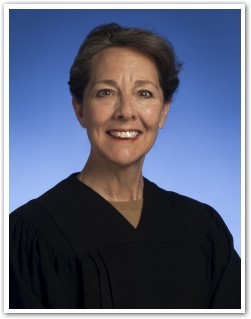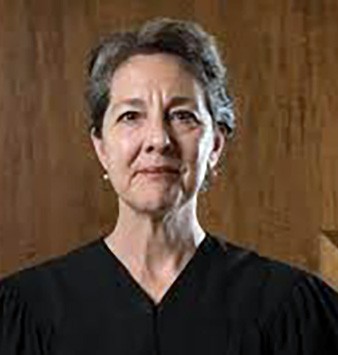
Chancellor Lyle
One of the more significant acts of jurisprudence in Tennessee in 2020 was a decision by Nashville chancellor Ellen Hobbs Lyle to strike down barriers in state law to mail-in voting.
Ruling last June on suits brought by a group of Memphis petitioners and the ACLU, Lyle declared she was suspending, for the duration of the pandemic, restrictions on absentee-voting for all eligible Tennessee voters.
In so doing, she rejected arguments from Tennessee Secretary of State officials that expanding mail-in voting on that scale would overwhelm state election offices and that fear of COVID-19 was not sufficient grounds for avoiding in-person voting.
The state dragged its heels on complying and appealed, resulting in new orders from Lyle, followed by a hearing by the state Supreme Court, which by a one-vote margin vacated part of Lyle’s ruling but allowed a right to vote absentee due to “underlying medical conditions” that could be affected by COVID.
Now Republican members of the state House of Representatives are trying to get Judge Lyle removed for her efforts. A House ouster resolution, sponsored by 64 Republican members, maintains that Lyle “committed serious ethical violations and abused her authority by pursuing a personal and partisan agenda” in substituting her judgment for the restrictions on eligibility to vote absentee embedded in state law.
The resolution would create a 10-member committee, composed of five members each from the House and Senate, to make recommendations regarding Lyle’s status. Should the group recommend removal, a two-thirds vote in both chambers to do so would result in Lyle’s ouster from the bench.
Reaction came Friday from University of Memphis law professor Steve Mulroy, who argued the case for mail-in expansion last year before both Lyle and the state Supreme Court on behalf of the Memphis petitioners, members of Up the Vote 901. Said Mulroy: “Judge Lyle’s rulings were thoroughly based on the law and the factual record. The election relief she ordered was consistent with how almost every state reacted to the pandemic.
“The Tennessee Supreme Court ended up directing the state to do the bulk of that relief. Nothing she did was remotely ‘unethical,’ or approached the legal ‘for cause’ standard of misconduct required under the law for removal.
“If the legislature can remove a judge every time they don’t like a single decision, you can kiss judicial independence goodbye.”
Memphis lawyer Jake Brown, who also represented Up the Vote 901, added: “Chancellor Lyle is a dispassionate, serious-minded jurist. An attack on her is an attack on competence and the very notion of an independent judiciary. The language of this resolution is sophomoric in tone and plainly partisan in purpose.
“The Chancellor’s opinions in the absentee-ballot case were reserved and closely reasoned. Therefore, the only persons guilty of ethical violations here would be any members of the state bar who are also legislators that sign on to this frivolous pronouncement. “
No Tennessee state judge has been removed from office by the General Assembly since Chancellor David Lanier of Dyersburg was ousted after his conviction on seven federal charges of sexual assault in 1993.

